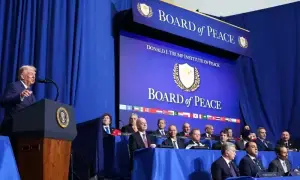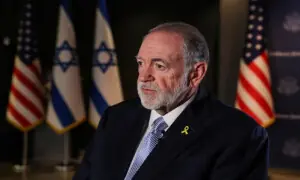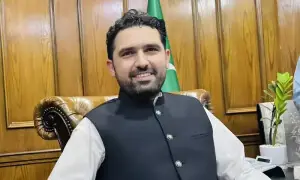Nothing new in Biden’s Pakistan statement: White House
3 min readThe US administration has defended President Joe Biden’s “dangerous Pakistan and nukes statement”, saying that it was nothing new.
“Look, the President views a secure and prosperous Paskitan — Pakistan as a crit- — as critil- — as critical to US interests,” Press Secretary Karine Jean-Pierre was quoted as saying in a transcript of her press gaggle en route Portland, Oregon. “So that is something that he’s — his view has — has been on Pakistan.”
The US president’s comments on the geo-political situation and Pakistan’s presence between Russia, India and China drew criticism in Pakistan, with Prime Minister Shehbaz Sharif’s administration summoning US Ambassador Donald Blome for a demarche.
Read: Pakistan may be one of the most dangerous nations in world: Biden
“And what I think is maybe one of the most dangerous nations in the world: Pakistan,” President Biden was quoted as saying in a transcript of his address at a Democratic Congressional Campaign Committee Reception on Friday. “Nuclear weapons without any cohesion.”
The White House press secretary stressed that the US president has made such comments before.
“More specifically, he has said — he’s had that — he’s made those comments before, so that is nothing new, that — what you heard from him last night,” she said, reiterating that a “secure and prosperous” Pakistan was important to US interests.
PM Shehbaz in a statement on Saturday described the US president’s remarks about Pakistan’s nuclear programme as “factually incorrect and misleading”.
Read: Pakistan summons US envoy over Biden ‘most dangerous nation’ remark
“Over the past decades, Pakistan has proven be a most responsible nuclear state, wherein its nuclear programme is managed through a technically sound and foolproof command and control system,” it said.
“Surprised” Foreign Minister Bilawal Bhutto Zardari was of the view that it was exactly the sort of misunderstanding that was created when there was a lack of engagement.
Michael Kugelman, the South Asia Institute Director at The Wilson Center, said it was a strange comment-not the type of thing senior US officials typically say publicly as much as they used to.
“Biden’s comments certainly won’t help improve Pakistani public perceptions of the US, but I doubt it’ll impact bilateral relations in a big way,” he said in a series of tweets. “This is where finally having a formal Amb back in Islamabad will help. Reaction from Pak officials has also been fairly conciliatory.”
Kugelman was of the view that Biden reference to “without any cohesion” might have been a reference to current trends playing out in Pakistan more broadly right now (its current divisions and volatilities), and not to nuclear issues per se.
“What prompted Biden’s comment re Pak nukes? Don’t know. But he likely has received daily intel briefs that refer to Pakistan’s churn-bad political polarization, an economic crisis, resurgent terror. That, combined with legacy concerns about nukes, may have prompted the comment,” he said.
The South Asia Institute Director at The Wilson Center said that the Pakistan Democratic Movement and the Biden administration “did not collude” in former premier Imran Khan’s ouster. “But both of them have unwittingly helped strengthen his narrative and increase his popularity since his ouster.”
For the latest news, follow us on Twitter @Aaj_Urdu. We are also on Facebook, Instagram and YouTube.
























Comments are closed on this story.